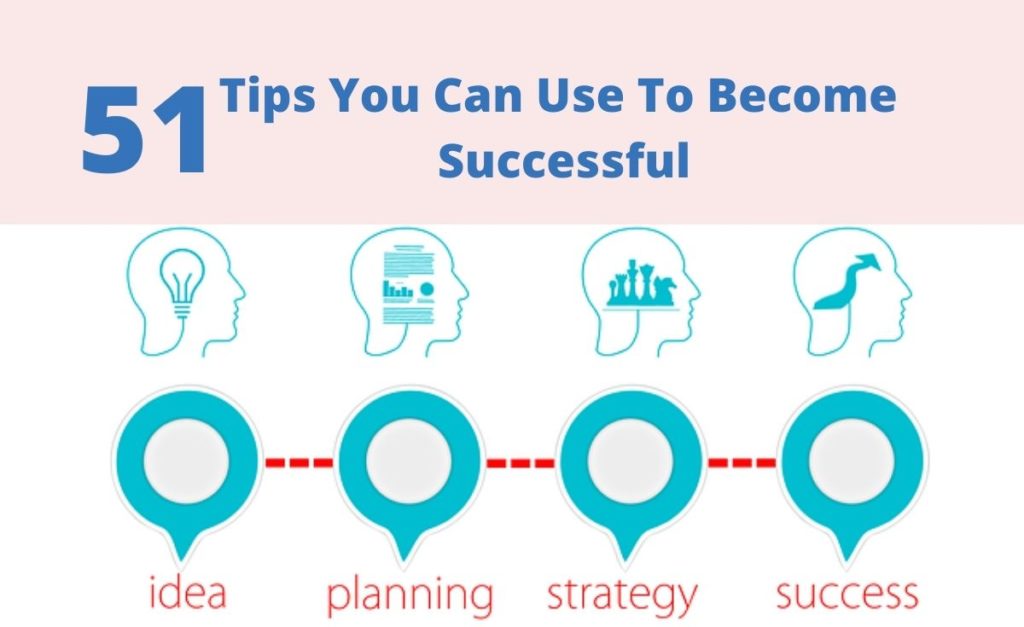Are you tired of the daily grind of commuting to an office? Do you crave the flexibility to work from home and set your own schedule? Well, becoming a virtual assistant might just be the career change you’ve been searching for. In this ultimate guide, we’ll take you through seven simple steps that will equip you with everything you need to become a successful virtual assistant and get your first gig fast with no experience. From understanding the basics of virtual assistant work to finding clients and setting your rates, we’ve got you covered.
Without further ado, the following are the 7 important steps to becoming a virtual assistant.
Step 1: Understand the Basics of Virtual Assistant Work
To start your virtual assistant journey, you need to understand the basics of this kind of work. You cannot become a virtual assistant without knowing the job requirements, expected skills, and the nature of work for virtual assistants. Essentially, virtual assistants are independent contractors who provide administrative or operational support to clients remotely. This means that as a virtual assistant, you can work from anywhere in the world and still be able to deliver quality work to your clients. You’ll be responsible for tasks such as managing emails, scheduling meetings, creating reports and presentations, bookkeeping, and many other administrative duties.
Step 2: Identify In-Demand Virtual Assistant Skills and Tools
Before you become a virtual assistant and start working remotely, you need to have the skills and necessary tools for virtual assistant positions. First, and foremost, excellent communication skills are a must. As a virtual assistant, you’ll be working remotely. So, the ability to communicate effectively with clients via email, phone, or video conferencing is essential.
Organizational skills are also incredibly important. You’ll likely be handling multiple clients and tasks simultaneously. So, a strong ability to manage your time and prioritize your workload is essential to become a virtual assistant. Additionally, proficiency in basic software such as Microsoft Office, and Google Suite, and project management tools like Trello or Asana can help you stay on top of your work.
Specialized skills such as social media management, email marketing, and graphic design can also make you more marketable to potential clients as a virtual assistant. It’s not necessary to be an expert in all of these areas, but having a foundational understanding can set you apart from other virtual assistants.
Since you will be working remotely, you need to have a computer with an up-to-date operating system with a reliable internet connection. You should also have a microphone and other tools such as an active phone with data in case you need to speak to your clients.
Finally, it’s important to stay up-to-date with the latest technology and trends in the virtual assistant industry. This may include learning new software or tools as they emerge or staying informed on industry best practices through online forums or professional development courses.
Identifying the necessary skills and tools is an important first step in becoming a successful virtual assistant. By developing these core competencies, you’ll be better equipped to take on new clients and grow your business.
Step 3: Develop Your Virtual Assistant Skillset
To excel as a virtual assistant, it’s crucial to develop a diverse set of skills to meet your client’s needs and demands. The following are some of the skillsets you need to put together to become a virtual assistant and make money.
- Acquire technical skills. Ensure you have the technical skills required to work remotely, such as proficiency in Microsoft Office or G Suite. You can also consider learning more advanced tools like project management software, social media management tools, and video conferencing tools like Zoom, Microsoft Teams, or Google Meet.
- Improve your communication skills. Strong communication skills are essential in this field. You’ll need to be able to communicate clearly and professionally with clients via email, phone, and messaging platforms. Active listening, conflict resolution, and problem-solving skills will also come in handy when dealing with clients especially angry ones and those with tight deadlines.
- Bookkeeping and organizational skills. As a virtual assistant, you will manage different files, systems, and other data from your customers. So, being organized and having the basics of bookkeeping is necessary to become a virtual assistant.
- Writing and Typing. Being able to type fast is essential to becoming a virtual assistant. For example, you might be on a phone and have to type your client’s information at the same time. You can only achieve this if you can correctly type fast. You might also need to write long documents such as proposals, emails, and reports. So, being able to type is also an essential skill set for virtual assistants.
- Email management. To successfully become a virtual assistant, you will need to know the basics of email management as you will serve as the liaison between your clients and their customers.
- Basics of IT services. While you don’t need to be an IT professional, knowing the basics of IT services is essential to work as a virtual assistant. With this knowledge, you can easily troubleshoot simple technical problems with your systems which leads to fewer delays in your project deliveries.
- Time management. Once you have become a virtual assistant, you will work remotely and independently. For this reason, you must have time management skills to help you meet your schedule and satisfy your client’s demands.
- Multitasking. Most virtual assistants juggle through multiple projects either from the same clients or from multiple clients. So, your ability to multitask makes you stand out among other virtual assistants.
- Stay up-to-date with the latest industry trends and best practices. This can be achieved by participating in online forums or courses focused on the virtual assistant industry. Ensuring that you are knowledgeable about the latest developments and tools will enable you to provide clients with the best service possible.
Step 4: Build Your Professional Online Presence
In today’s digital age, having a professional online presence is crucial for any freelancer, including virtual assistants. Building a strong online presence allows you to showcase your skills and services to potential clients, and establish trust and credibility in your industry.
One of the first steps toward building your online presence is creating a website that highlights your services, experience, and achievements. Your website should be easy to navigate, visually appealing, and showcase your personality and unique values as a virtual assistant.
In addition to having a website, it’s important to have active social media accounts, including LinkedIn, Twitter, and Facebook. These platforms provide a great opportunity to network, connect with other professionals in your industry, and promote your services to potential clients.
Another important aspect of your online presence is having a professional email signature that clearly displays your name, title, and contact information. This small but significant detail can make a big impact on how potential clients perceive your professionalism and attention to detail.
By focusing on building a strong online presence, you’ll be positioning yourself as a reputable and skilled virtual assistant. This will allow you to attract more clients and opportunities from diverse sectors.
Step 5: Find Virtual Assistant Jobs and Clients
Once you’ve established your online presence, it’s time to start seeking out virtual assistant jobs and clients. One effective way to find opportunities is by utilizing job boards specific to virtual assistants, such as Remote.co, We Work Remotely, Upwork, and Fiverr. These websites allow you to create a profile, search for relevant positions, and apply directly to the companies in need of your services.
Another useful tactic is networking with other virtual assistants and professionals in your desired industries. LinkedIn is a powerful tool for networking for virtual assistants, as you can connect with like-minded individuals and potentially find referrals or job leads. Additionally, attending virtual conferences and events can provide opportunities to make valuable connections and learn about the latest trends in the industry.
It’s also important to leverage your existing personal and professional networks. Let your friends, family, and colleagues know that you’re looking to take on virtual assistant work. Additionally, reach out to businesses you’ve worked with in the past to see if they have any potential projects or opportunities for you.
Step 6: Set Your Rates and Manage Your Finances
Once you’ve landed your first few virtual assistant clients, it’s important to establish your rates and manage your finances effectively. It can be tempting to lowball yourself in order to secure more work, but it’s crucial to set fair prices that reflect your skills and experience.
One effective way to determine your rates is to research what other virtual assistants with similar experience levels are charging. Keep in mind that your rates may vary depending on the services you offer and your niche expertise. It may also be helpful to offer tiered pricing options or package deals for clients who need ongoing support.
In addition to setting your rates, you’ll need to establish a system for managing your finances. This may include creating a separate bank account for your business expenses, tracking your income and expenses using accounting software, and setting aside funds for taxes.
By setting clear rates and managing your finances effectively, you’ll not only ensure a sustainable income for yourself but also build trust and credibility with your clients.
You might also like: How to negotiate a salary after a job offer?
Step 7: Tips for Success as a Virtual Assistant
Being a virtual assistant requires some work. But, being a successful virtual assistant requires hard work and patients. If you are interested in becoming one of the best virtual assistants in your industry, here are some tips to help you achieve this career goal.
- Start slow. As a virtual assistant starter, you have not built the credibility needed to land higher-paying virtual assistant gigs. For this reason, you need to start slow and charge a reasonable rate to get more referrals and reviews. In some cases, you might need to take on clients and complete projects for free in exchange for a positive review. As you build positive reviews from different clients, you can then start charging or increasing your rates. Slow and steady is the best way to secure a long-term virtual assistant career.
- Communication is key. As a virtual assistant, you’re an integral part of your client’s team, and clear communication is essential. Always be responsive to emails and messages and maintain open and honest communication with your clients. This will help you build strong relationships that will lead to repeat business and positive referrals.
- Stay organized. Keep track of deadlines, appointments, and to-do lists to help you manage your workload effectively. You can use tools like project management software, calendars, and task lists to keep yourself on track and ensure that you never miss a deadline.
- Don’t be afraid to say no. As a virtual assistant, you’ll likely receive requests for tasks outside of your area of expertise or workload capacity. While it may be tempting to accept every request, it’s important to prioritize your workload and only take on tasks that align with your skills and availability.
- Invest in your professional development. Attend workshops and webinars, read industry blogs and books, and network with other virtual assistants to stay up-to-date with the latest trends in the industry. Continually improving your skills and knowledge will set you apart from the competition and help you maintain success as a virtual assistant.
By implementing these tips, you’ll be on your way to continued success as a virtual assistant. Keep in mind that success is not just about the work you do, but also about the relationships you build and the value you bring to your clients. So, always treat your clients with respect and stay in touch with them. You might end up landing more side gigs in the virtual from old clients.
The bottom line
Becoming a virtual assistant is a viable option for anyone looking to escape the daily grind of commuting to work. Once you have become a virtual assistant, you also enjoy a flexible work schedule from the comfort of your own home. By following the seven steps outlined in this guide, you’ll be equipped with the necessary skills, tools, and knowledge to succeed in this growing industry. The demand for virtual assistants is constantly increasing but the skillset needed for virtual assistants is also changing. Always keep up with the industry and invest in professional development to stay ahead in this industry.









